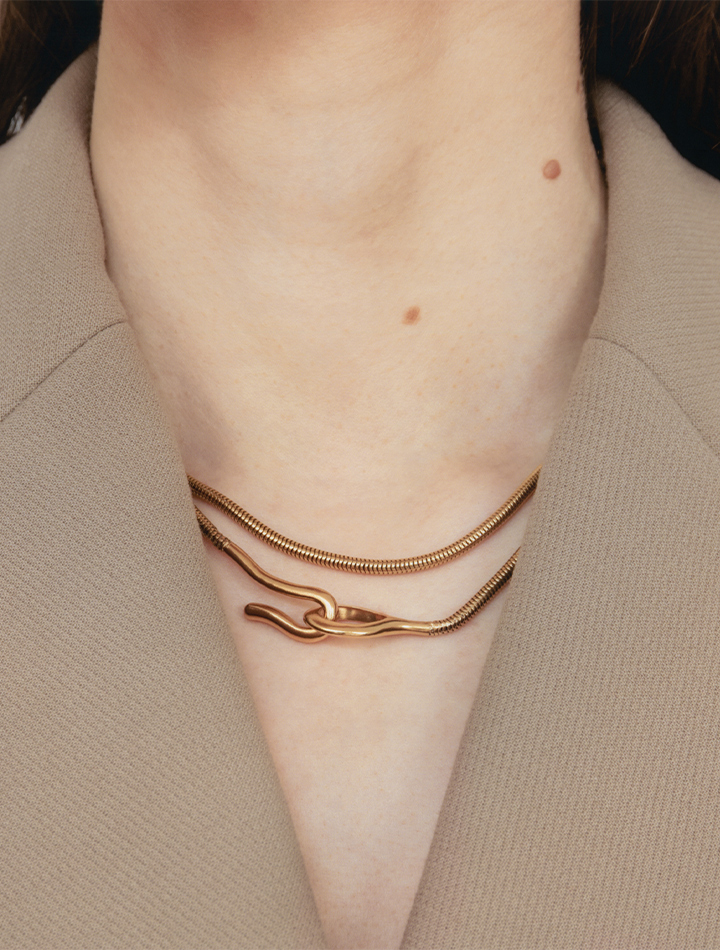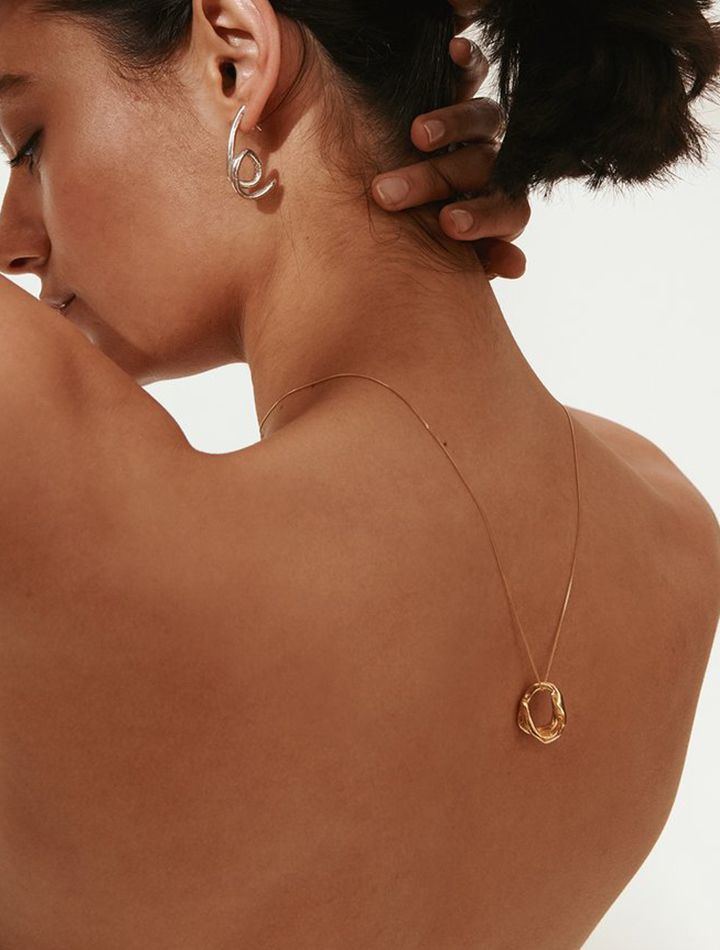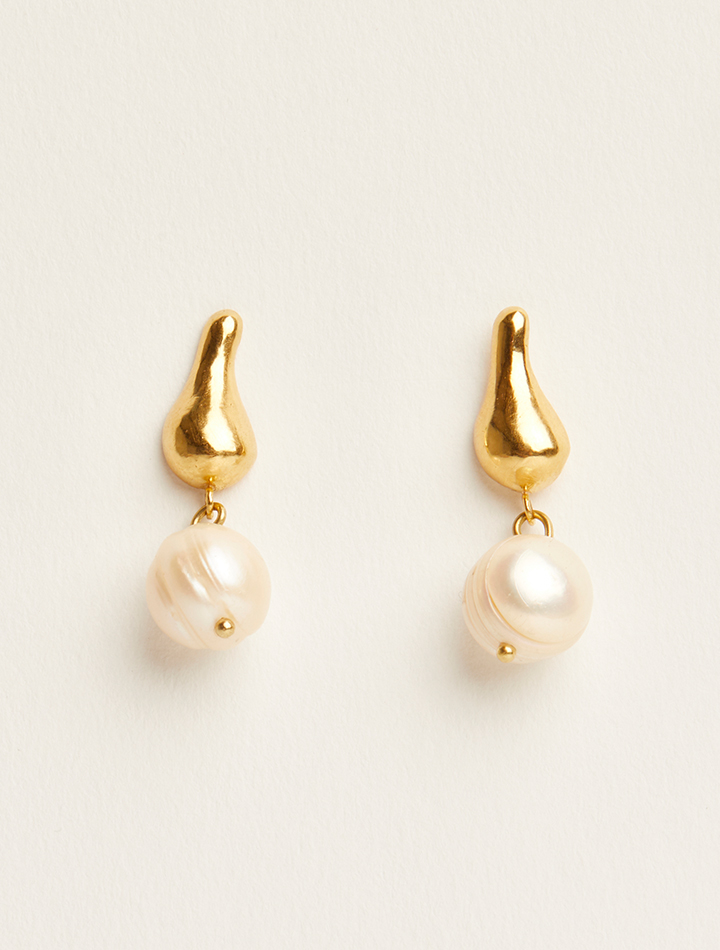Description
This necklace draws inspiration from the abundant, twisting branches of a forest, reaching outward in graceful forms that evoke the layered beauty of a vibrant canopy. The choker flows in organic, vine-like shapes. Delicate pearls are artfully set along the curve, resembling clusters of fresh blossoms clinging to the branches. Diameter: 14cm. Thickness: 4.8cm. Freshwater pearls. Available in recycled sterling silver or sterling silver with 18ct gold plating. Each jewellery piece is handmade and meticulously finished in their London studio.
Made just for you upon order for delivery within 1-3 weeks!
Sustainability
Hand Made
Locally Made
Upcycled / Recycled
Zero Waste
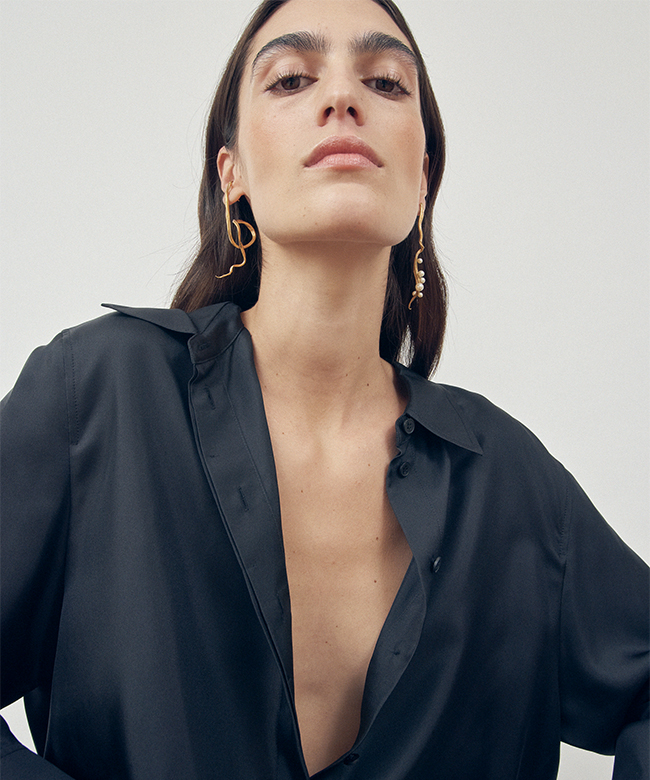

materials
Ethically Sourced & Recycled Metals
All the precious metals Carolina de Barros use are repurposed from old jewelry, electronics and other industrial by-products. Their supplier is a member of the Responsible Jewelry Council, which ensures that metals are ethically sourced and 100% recycled. In addition, using recycled metals instead of mined materials not only reduces carbon emissions by two thirds, but also reduces water usage, slows consumption of natural resources, and protects groundwater from being contaminated. And any scrap metal they generate is melted down for reuse.
They also get their gemstones and pearls from trusted RJC-certified suppliers. Each gemstone is hand-picked for quality and each of their ethically farmed pearls is completely unique.

manufacture
Locally Handcrafted In London
Supporting local craftsmanship and small businesses is part of Carolina de Barros’s DNA. After all, this is their community. Each piece is handmade on demand at their London studio and cast by a family-run business, whose know-how has been passed down through generations. In turn, by keeping their production local, instead of outsourcing, they are also reducing their carbon emissions.
In today’s whirlwind of excess, Carolina de Barros have decided to focus on slow production and quality rather than quantity. They believe that the key to sustainability —less waste, reduced carbon emissions, less mindless consumption— starts by making timeless designs that can last for generations.
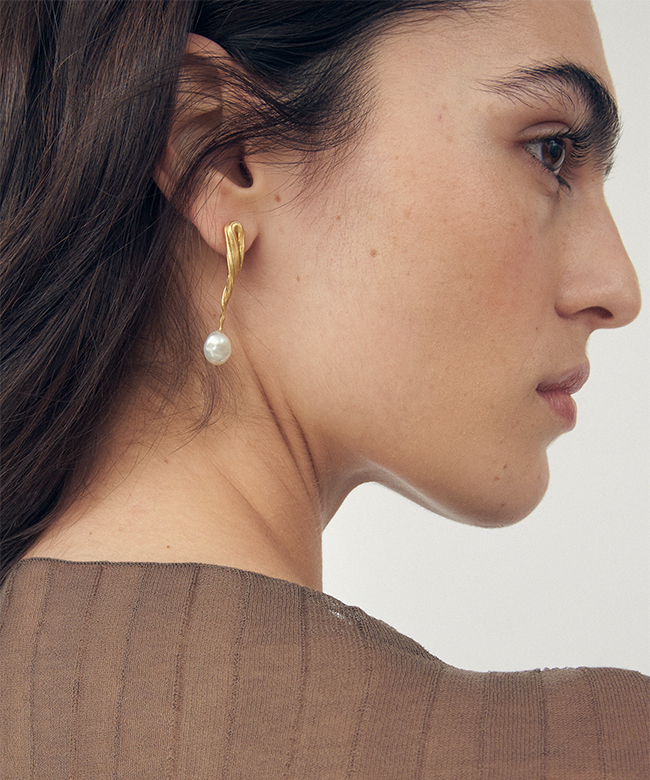


















 Back to shop
Back to shop